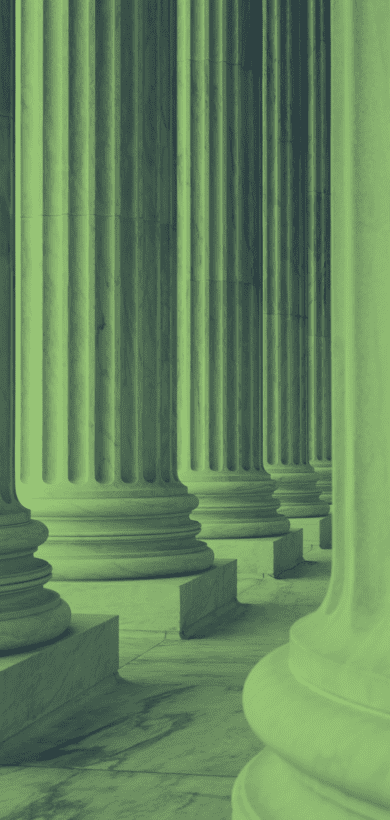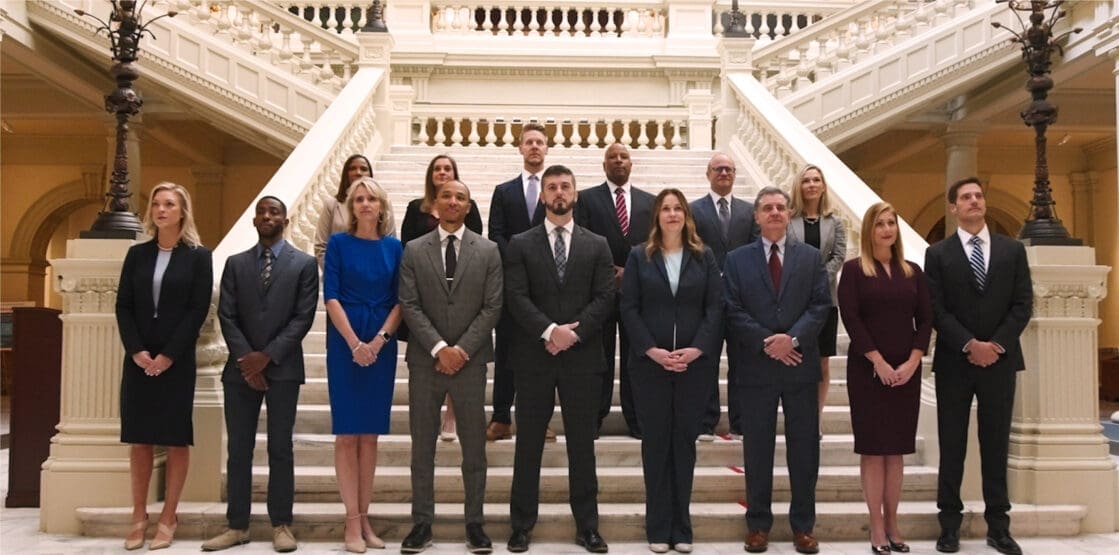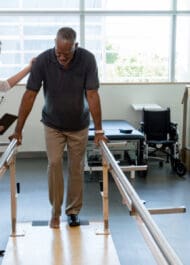Premises Liability Accident Injury Lawyers Nationwide
They're Responsible for Your Fall. They Should Be Responsible for Your Recovery.
A property owner failed to meet basic safety standards. Now you’re paying a high emotional, physical, and financial cost.
At Montlick, we understand how a person’s life can change permanently because of the negligence of property owners who fail to keep their premises safe from dangerous hazards. Property owners often vigorously defend premises liability claims, alleging they are not at fault for what happened, and push the blame onto our clients.
We’re experienced with fighting against premises liability defendants, who often attempt to deny or minimize our clients’ claims. After an accident disrupts your life, the last injustice you need is financial stress. Montlick goes the extra mile to ensure our clients receive the highest compensation possible.
SEE IF YOU QUALIFY
Do you have a case?
Real Help Begins Here®

SEE IF YOU QUALIFY
Do you have a case?

The Compensation You Need. The Compassion You Deserve.
Our Focus Is On You
We know how hard it is for people to recover after an injury, especially when big companies are trying to deny them the money they need. That’s why we choose to only represent injured people, never insurance companies, big businesses, or corporations.
Our results speak for themselves
Montlick has recovered billions of dollars for our clients. We believe in fighting to ensure that our clients and their families get the financial compensation they deserve after an injury. We know how to demand justice–and win.
Here's What Makes Us A Different Kind of Law Firm
- We always operate ethically and with integrity
- Your FREE consultation is always with an attorney
- We communicate frequently and promptly
- We provide personalized service unique to your case

Experienced Premises Liability Lawyers
We Know What it Takes to Win®
No one expects to suffer an accident when we leave our home, much less an accident experienced on somebody else’s property and because of their negligence. A property owner has a duty of care when you step onto their premises. When this duty of care is not honored and you become injured, your mental, emotional, physical, and financial state can all be impacted.
Property owners commonly allege that they are not at fault for what happened, and they often argue two theories as to why they should not be held liable. The defendant may argue that they were not aware of a hazard or that they did not have enough time to discover the hazard and remove it. Another common defense to premises liability claims is that the plaintiff was in some way responsible for the incident. In either situation, the victim is blamed and manipulated to believe that this was somehow their fault. Don’t be deceived — the start to justice begins with a call to Montlick.
Premises Liability Claim Lawyers
Common Causes of Injuries Sustained in Premises Liability Claims
Committed to Your Recovery
No matter where you are, we are just a phone call or message away.
Property owners and occupiers owe a duty to the public to keep their premises safe, and can be held liable if their failure to do so results in injuries, whether an injury occurs in a restaurant, store, or someone else’s home. Often, victims are left with severe injuries, costly medical care, lost income, disability, and pain and suffering when injured because of an unsafe condition on someone else’s property. When an injured plaintiff pursues a case against a property owner on the basis of their failure to keep their property safe, it is called a premises liability claim. Our attorneys handle cases involving all types of scenarios in which a property owner can be held accountable for negligence (some of which are particularly unique), but common causes of premises liability claims include the following:
- Slippery and/or wet floors
- Unmarked sudden drops in elevation
- Illusions without proper warnings
- Collapsing staircases, balconies, and outdoor patios
- Poor lighting
- Shocks/electrocutions
- Structural defects known by a homeowner
- Uncovered holes
- Building fires
- Gas leaks, including those that result in poisoning
- Failure to adhere to applicable building codes
- Unsecured falling objects
- Unattended heavy machinery
- Amusement park/carnival ride accidents
- Malfunctioning elevators/escalators
- Improperly aligned pathways and floors
- Inadequate supervision
- Unfenced swimming pools or other bodies of water
- Negligent Security, in cases where property owners fail to take the appropriate steps to protect customers’ and/or tenants’ safety, and someone is severely injured or tragically killed because of an act of violence.
Slip, trip and fall accidents in particular are common bases for premises liability claims. However, each premises liability claim is unique and can affect people of all ages. As noted above, they can arise out of many scenarios and incidents, whether they be failure of a property owner to clean a spill, warn of a high voltage area, or prevent heavy objects, such as light fixtures or pieces of ceiling, from falling on someone’s head. Property owners and occupiers are also responsible, by way of example, for covering holes in the ground, obeying structural building codes and local ordinances, warning of known hazards, and even inspecting their property for less noticeable dangers. In negligent security cases, our firm pursues cases in which victims are physically assaulted, raped or tragically murdered when property owners fail to maintain adequate security when they are aware of a high probability or likelihood of violent crimes.
Your Questions Answered
Premises Liability and Slip and Fall FAQs
After an accident, a slip-and-fall lawyer will advocate for you and work to secure compensation for your medical care and any potential future damages directly linked to the slip-and-fall.
An owner of a private residence is not required to take security measures to protect a social guest who visits their property.
A property owner can be liable for such conditions just as they can for man-made conditions.
Even if you were not paying attention, this will typically only result in a reduction in the amount you recover.
Our Results
Our Accident & Injury Case Results
Automobile Collision
Client was tragically killed instantly when the driver of a pick up truck lost control of his vehicle and slid...
Million
Property Damage from Fire: Obstructed Fire Hydrants
Represented 21 tenants, the victims of fire at an apartment complex. Unfortunately th firefighters could not battle the blaze effectively...
Thousand
Premises Liability, Worker’s Compensation.
"Our Client was on the job working at a saw mill factory. She was positioned at a ""round table"" where...
Thousand
Premises Liability
Our Client was returning a purchase at the return desk of a retail store. Another customer had returned a leaking...
Thousand

Because we can’t stop accidents from happening, we do what we can to help minimize their long-term impact. We put more money in your pocket, where it belongs.


